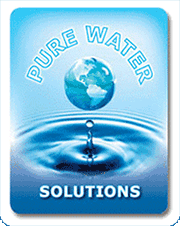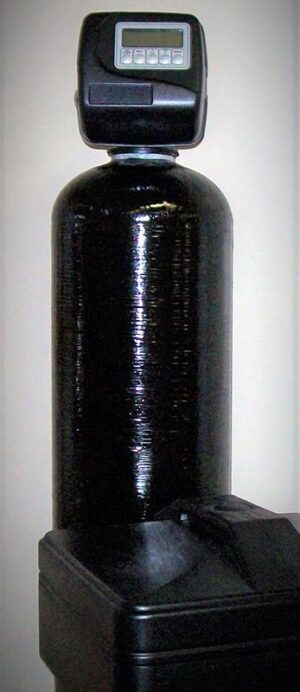Is your well water hard or soft? There’s no need to guess.
Call for an onsite FREE TOP 10 WATER ANALYSIS and consultation.
541-890-2751
CLICK TO CALL
Pure Water Solutions will test your water for mineral content and contaminants. You’ll receive a free written report. Your water analysis is 100% free!
Pure Water Solution’s Water Softeners are Low Cost, State of The Art and GUARANTEED TO PERFORM. We are a licensed contractor and offer complete installed packages.
What makes water hard?
(Excerpts from articles and a University Study)
Every household uses water and none of it is absolutely pure. One class of water impurity that is of special interest is “hardness”. This refers primarily to presence of dissolved calcium and magnesium carbonates, which are acquired as water comes in contact with rocks and sediments in the environment.
Hard water causes two types of problems.
- Reduces effectiveness of soap and prevents complete removal of soap residue from clothes, skin and hair during cleaning.
- Scale build-up that results primarily from carbonates of calcium and magnesium precipitating from solution.
Scale build-up from hard water can clog faucets and showerheads; cause unsightly spots on utensils and kitchenware; plug plumbing systems and pumps; cause scale build-up in showers, swimming pools and spas; and can ruin heat exchangers, boilers and hot water heaters. In boilers and hot water heaters, the deposits act as thermal insulation that impedes the flow of heat into the water and wastes energy.
Minerals which cause hardness in water have a wide impact on households
Household Tasks
Hard water interferes with almost every cleaning task from laundering and dishwashing to bathing and personal grooming. Clothes laundered in hard water may look dingy and feel harsh and scratchy. Dishes and glasses washed in hard water may be spotted on drying. Hard water may cause a film on glass shower doors, shower walls and bathtubs. Hair washed in hard water may feel sticky and look dull.
Home Appliance Performance
Hard water also affects the performance of household appliances. Researchers at New Mexico State University studied the effects of water quality on the performance of gas and electric residential water heaters. The one-year study measured the energy consumption of six gas and electric residential water heaters in use for 5 to 15 years in Las Cruces, New Mexico. Half of each group used the area’s untreated hard water exclusively. The other half used softened water exclusively. Results of the study showed that water heaters using only hard water consumed considerably more energy than those using only softened water.
The researchers removed and weighed the sediment and scale accumulated in each of the water heaters. The group using only softened water contained scale buildup weighing from 1.09 pounds to 4.27 pounds. The group using only hard water contained scale buildup weighing from 3.86 pounds to almost 40 pounds.
Accumulated scale is a poor conductor of heat. In water heaters, accumulated scale insulates the water from the heat source. The New Mexico study demonstrated that water heaters with scale buildup used more energy to deliver a given amount of hot water than heaters without scale buildup.
Another study conducted at Ohio State University showed that the use of softened water in certain household tasks lessened the time necessary to complete the tasks, permitted ease of cleaning, and contributed to savings in the amount of household cleaning products used. If these items are important to you, consider softening water in your household.
Measures of Water Hardness
Calcium and magnesium ions present as sulfates, chlorides, carbonates and bicarbonates cause water to be hard. Water chemists measure water impurities in parts per million (p.p.m.). For understandability, hardness ordinarily is expressed in grains of hardness per gallon of water (GPG).
The two systems can be converted mathematically. One grain of hardness is the amount of calcium and magnesium equal in weight to a kernel of wheat. The table below shows how the Water Quality Research Council classifies water supplies.
| Water Quality Research Council’s Water Supply Classifications | |
| Soft Water: | 0 to 1 grains per gallon |
| Slightly Hard Water: | 1 to 3½ grains per gallon |
| Moderately Hard Water: | 3½ to 7 grains per gallon |
| Hard Water: | 7 to 10½ grains per gallon |
| Very Hard Water: | Over 10½ grains per gallon |
Pure Water Solutions offer affordable high quality Water Softeners
How To Reduce Hardness
You can reduce water hardness by buying a mechanical water-softening tank and connecting it to your water supply line.
According to the Water Quality Research Council, all recognized home water-softening equipment now on the market operates on the ion exchange principle to remove hardness minerals from water.
In the ion exchange process, the water passes through a bed of softening material, usually sulfonated polystyrene beads, which are micro porous. The beads are supersaturated with sodium to cover both their exterior and interior surfaces, thus having the ability to take on or give up electrical charges.
The ion exchange takes place as the hard water passes through the softening material. The calcium and magnesium attach themselves to the resin beads while the sodium in the resin beads is released simultaneously into the water.
This process occurs billions of times during softening.
Eventually, so much hardness collects on the softening material that the unit can no longer soften the water and recharging is necessary. Then, the softening material is washed automatically with a brine solution to replace the sodium and enable the ion exchange process to continue.
Types of Water Softener: Salt based and Salt Free Softeners
Most water softeners today are automatic systems. The unit operates with a timer and all operations are activated automatically. Softening material contained in the system is sufficient for multiple regenerations but must be added periodically as required.
Typically, salt based water softening salt pellets or very coarse granular salt labeled and made specially for salt based water softeners is used. Salt Free Softeners use no salt, electricity, or backwashing water.
Pure Water Solutions offers installation and service both Salt based and Salt Free Water Softeners depending on personal preference.
Call Pure Water Solutions for your FREE Water Test
541-890-2751
CLICK TO CALL
Our goal is 100% Customer Satisfaction
References: American Health, January/February 1983, pp. 62-78.New York: American Health Partners. American Heart Association Task Force on Cardiovascular Disease. “Impact of Environment on Cardiovascular Disease: Report of the American Heart Assoc. Task Force on Cardiovascular Disease.” Issues & Answers: An A-Z Guide for Media Inquiry. #72-200-A, 1985. Ehrenkranz, Florence and Lydia L. Inman. 1973. Equipment in the Home. 3rd Edition, pp. 313-315. New York: Harper and Row. Jones, Elmer. 1984. Water Quality Improvements for Farmstead and Rural Home Water Systems. Washington, DC: USDA Farmer’s Bulletin Number 2274. Lyle, Dorothy. 1977. Performance of Textiles, pp. 287-292. New York: John Wiley & Sons, Inc. Quality Water at the Tap. 1983. Lisle, Illinois: The Water Quality Research Council. Tips on Water Conditions. 980. Washington, DC: The Council of Better Business Bureaus, Inc. Water Hardness. 1980. Lisle, Illinois: The Water Quality Research Council. Water Softeners as Energy Conserving Investments. 1981. Lisle, Illinois: The Water Quality Research Council. Your Guide to Brighter Wash Days. Chicago, Illinois: Sears, Roebuck and Company.

